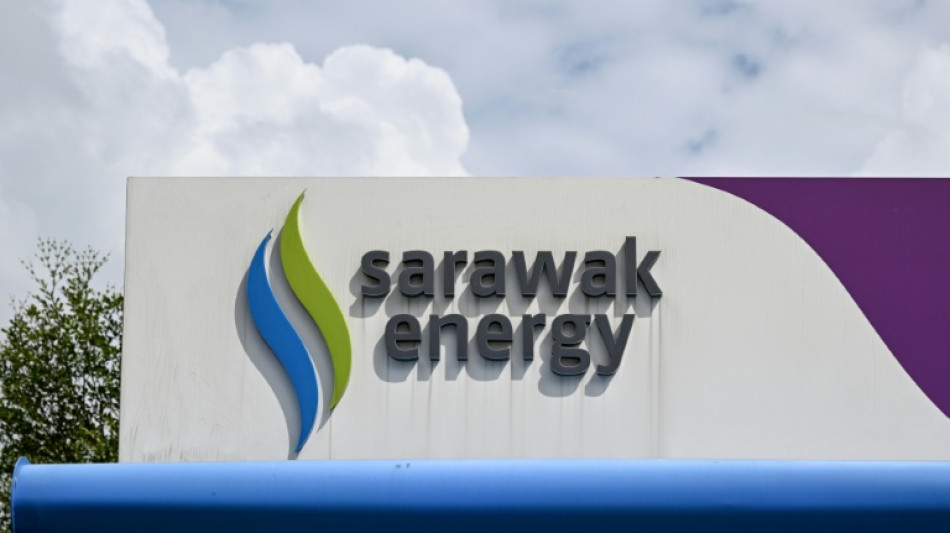
-
 Jamie Melham on Half Yours only second woman to win Melbourne Cup
Jamie Melham on Half Yours only second woman to win Melbourne Cup
-
Myanmar scam hub sweep triggers fraudster recruitment rush
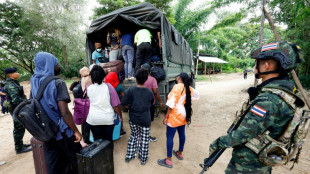
-
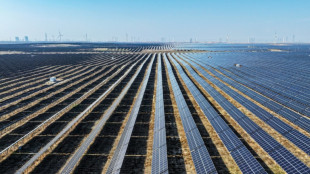 Biggest emitter, record renewables: China's climate scorecard
Biggest emitter, record renewables: China's climate scorecard
-
Floods strand people on roofs as typhoon pounds Philippines
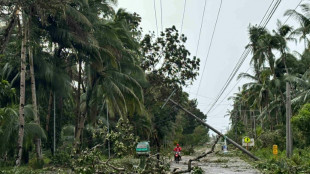
-
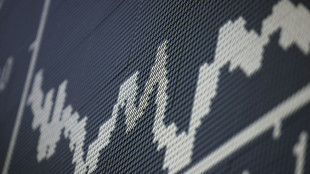 Asian markets swing as trades eye tech rally, US rate outlook
Asian markets swing as trades eye tech rally, US rate outlook
-
South Korea to triple AI spending, boost defence budget

-
 Trott to leave as Afghanistan coach after T20 World Cup
Trott to leave as Afghanistan coach after T20 World Cup
-
Late queen's fashion to go on show at Buckingham Palace

-
 In Morocco, exiled Afghan women footballers find hope on the pitch
In Morocco, exiled Afghan women footballers find hope on the pitch
-
EU scrambles to seal climate deal ahead of COP30

-
 New Yorkers expected to pick leftist Mamdani in stunning election
New Yorkers expected to pick leftist Mamdani in stunning election
-
Pining for Pinochet: how crime fanned nostalgia for Chile's dictator
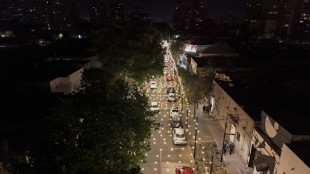
-
 Why an Amazon chef said no to a vegan dinner for Prince William event
Why an Amazon chef said no to a vegan dinner for Prince William event
-
Cement maker Lafarge on trial in France on charges of funding jihadists
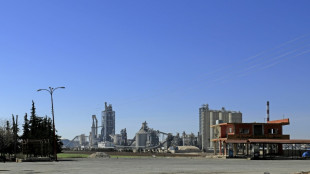
-
 Worker dies after medieval tower partly collapses in Rome
Worker dies after medieval tower partly collapses in Rome
-
Run-machine Labuschagne in form of his life ahead of Ashes

-
 Prince William plays football, volleyball in Rio on climate trip
Prince William plays football, volleyball in Rio on climate trip
-
Jamaicans mobilize aid in aftermath of Melissa's wreckage
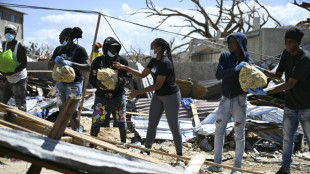
-
 Starbucks cedes China control to Boyu Capital
Starbucks cedes China control to Boyu Capital
-
Worker rescued after medieval tower partly collapses in Rome

-
 'Wild at Heart' actress Diane Ladd dies at 89
'Wild at Heart' actress Diane Ladd dies at 89
-
Xhaka lifts Sunderland into fourth after Everton draw

-
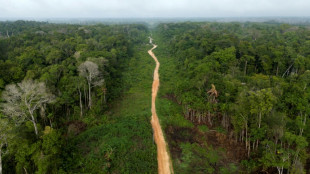 Brazil records biggest annual fall in emissions in 15 years: report
Brazil records biggest annual fall in emissions in 15 years: report
-
Victor Conte, mastermind of BALCO doping scandal, dead at 75: company

-
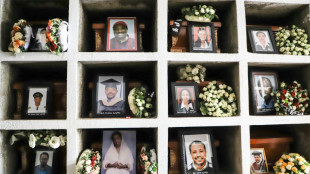 Trial opens in 1st US civil case on 2019 Boeing MAX crash
Trial opens in 1st US civil case on 2019 Boeing MAX crash
-
Mixed day for global stocks as market digests latest AI deals

-
 Barrett brothers out of All Blacks' clash with Scotland
Barrett brothers out of All Blacks' clash with Scotland
-
Medieval tower partially collapses in Rome, trapping worker

-
 Arsenal's Arteta says injured Gyokeres out of Slavia Prague tie
Arsenal's Arteta says injured Gyokeres out of Slavia Prague tie
-
Alonso says 'quality' Wirtz helped get him Real Madrid job

-
 US Fed's Cook warns inflation to stay 'elevated' next year
US Fed's Cook warns inflation to stay 'elevated' next year
-
Blue heaven: huge crowds salute Los Angeles Dodgers in victory parade

-
 Dutch centrist Jetten clinches election win: final tally
Dutch centrist Jetten clinches election win: final tally
-
Mamdani extends olive branch to anxious NY business community

-
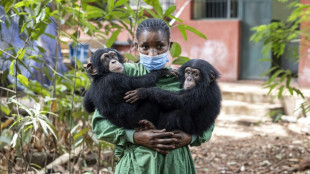 Sierra Leone chimpanzee sanctuary reopens after deforestation protest
Sierra Leone chimpanzee sanctuary reopens after deforestation protest
-
Shein bans sex dolls after France outrage over 'childlike' ones

-
 England full-back Steward doubtful for Autumn rugby clash with Fiji
England full-back Steward doubtful for Autumn rugby clash with Fiji
-
Bayern know how to 'hurt' PSG, says Neuer

-
 Rybakina downs Swiatek to reach WTA Finals last four
Rybakina downs Swiatek to reach WTA Finals last four
-
Ex-France international Ben Yedder to stand trial on rape charges

-
 Djokovic confirmed for ATP Finals, says Italian federation boss
Djokovic confirmed for ATP Finals, says Italian federation boss
-
Trent should be remembered for 'great' Liverpool moments, says Slot

-
 Stock markets diverge despite boost from AI deals
Stock markets diverge despite boost from AI deals
-
Prince William awed by Rio on climate-focused trip to Brazil
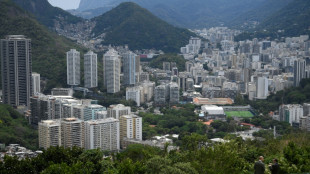
-
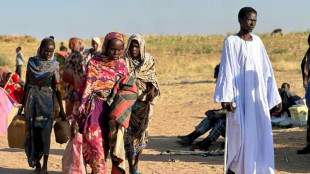 Violence in Sudan's El-Fasher could be war crimes, says top court
Violence in Sudan's El-Fasher could be war crimes, says top court
-
Rybakina downs Swiatek in WTA Finals

-
 Turkey, Muslim allies say Palestinian self-rule key to Gaza future
Turkey, Muslim allies say Palestinian self-rule key to Gaza future
-
Tens of thousands shelter as typhoon slams into Philippines
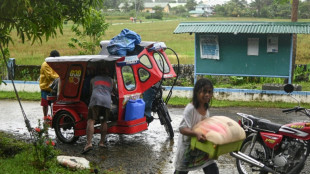
-
 Stock markets rise as tech sector buoyed by fresh AI deal
Stock markets rise as tech sector buoyed by fresh AI deal
-
Vitinha says PSG-Bayern Champions League clash will show who's 'best'


Malaysia's largest island state aims to be region's 'green battery'
Malaysia's verdant, river-crossed state of Sarawak is charging ahead with plans to become a regional "green battery," but its renewable energy dreams could come at serious environmental cost, experts warn.
Wedged between peninsular Malaysia, Indonesia, Singapore and the Philippines, Sarawak's leadership believes it could become a keystone in a regional energy transition.
Its many rivers and streams offer potentially abundant hydro-electricity and could one day power production of green hydrogen.
It is also installing solar and touting biomass to grow its renewable capacity, with Premier Abang Johari Tun Openg telling investors in Europe last week the state is "committed to a low-carbon and sustainable energy future".
But environmental groups warn much of this green energy infrastructure contributes to deforestation and the displacement of Indigenous groups.
And for now, Sarawak's main export is a fossil fuel: liquefied natural gas.
- Harnessing hydro power -
Sarawak began generating hydroelectricity several decades ago, and is currently building a fourth hydro-power plant.
They currently account for around 3,500 megawatts -- enough to light about two to three million Southeast Asian households daily.
Its first floating solar field is already producing around 50 megawatts, and more than a dozen others are planned, Chen Shiun, senior vice president of Sarawak Energy Corporation, told AFP.
With a population of fewer than three million, the huge potential energy surplus is obvious, he said.
By 2030, Sarawak aims to generate around 10,000 megawatts, mostly from hydropower, with solar and natural gas contributing.
It wants to supply neighbouring Sabah state and Brunei, and potentially mainland Malaysia, Singapore and the Philippines.
The state's ambitions are "bold and promising," and send "a strong signal for accelerating the region's energy transition," Shabrina Nadhila, an Asia analyst at energy think-tank Ember, told AFP.
- 'Good example' -
Southeast Asia's power demands have more than doubled in the last decade, and will only grow further as the expanding middle class installs air conditioning and energy-hungry data centres emerge.
Kuala Lumpur is hoping the growing demand will re-energise a long-mooted electricity grid connecting members of the 10-country Association of Southeast Asian Nations (ASEAN).
"Sarawak is a good example that we can learn from, especially when we talk about the APG (ASEAN Power Grid)," top Malaysian energy official Zaidi Mohd Karli told AFP.
Already, a 128-kilometre (80-mile) cross-border electricity connection is bringing hydropower from Sarawak to neighbouring Indonesia.
The state is also learning from other ASEAN countries such as Laos, which launched a similar hydro-powered plan in February, aiming to exchange around 1,500 megawatts of electricity with China by next year.
- Environmental fears -
But the state's grand aspirations remain dogged by environmental concerns over the destruction of ancient tropical rainforests for hydropower construction and timber logging.
"Although Sarawak has the lowest emissions grade factor by far of any state in Malaysia, it also has the largest rate of deforestation," Adam Farhan, of environmental watchdog RimbaWatch, told AFP.
"A large part of that can be attributed to hydropower."
More than 9,000 Indigenous people were relocated from Bakun to make space for one of Southeast Asia's largest dams, commissioned in 2011.
Almost 70,000 hectares -- an area about the size of Singapore -- of forest ecosystem was flooded, according to several environmental organisations and academic studies.
Relocation and compensation issues continue even today and there are fears of repeat scenarios and exclusion of local communities as new hydropower projects launch elsewhere, environmental groups said.
"The expansion of large hydropower infrastructure in Sarawak raises important environmental and social concerns," Ember's Nadhila said.
"To address these challenges, it is crucial to enforce strict and comprehensive environmental and social safeguards," she warned.
Farhan from RimbaWatch added: "Sarawak needs to do a lot more to sort out its Indigenous rights issues and its deforestation issues before I think it could call itself a 'green battery' for Southeast Asia."
B.AbuZeid--SF-PST
